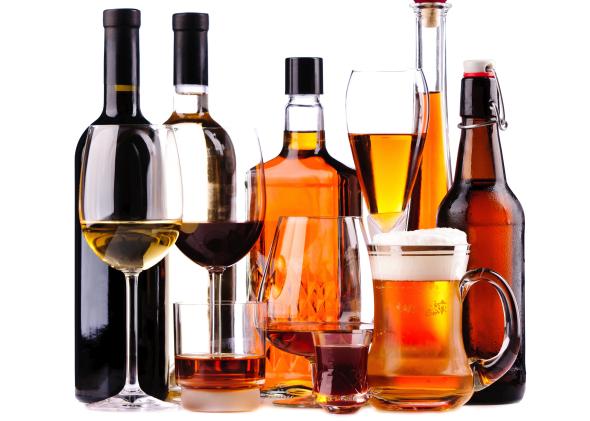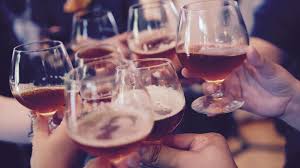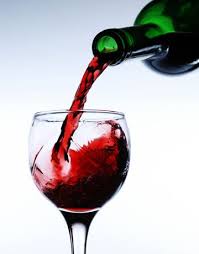
After eight years of drinking I have come to the conclusion that alcohol is confusing, there are always two things involved after drinking. Either you are very happy or by the time the night ends you are embarrassed.
People drink for different reasons, occasions and still that same drug somehow ignites feelings in line with the moment.
There are different types of drinkers and a drinker should know the category they fall under and the amount they can take.
When the term “high-functioning alcoholic” is mentioned, various types of drinkers often begin to question their own drinking and worry if they fall into this category. Part of this confusion is that many individuals are unclear about the differences in characteristics of social drinkers, problem drinkers and alcoholics. There is also a lack of awareness of what the true warning signs of alcoholism are.
Social drinkers are those individuals who drink in low-risk patterns. According to the National Institute on Alcohol Abuse and Alcoholism (NIAAA), “low-risk” drinking for females consists of no more than 7 drinks per week and no more than 3 drinks per sitting. For males, it consists of no more than 14 drinks per week and no more than 4 drinks per day.
Problem drinkers display clear differences between their drinking habits and those of alcoholics. In fact, according to the NIAAA, 72% of people have a single period of heavy drinking that lasts 3-4 years and peaks at ages 18-24 (typically occurs during the college years) that they phase out of. When problem drinkers are given sufficient reason to cut back on their drinking (ie, have a negative drinking consequence, debilitating hangover, becomes a parent), they are able to self-correct and return to drinking in a low-risk manner.
In contrast, alcoholics may be given countless reasons to cut back on their drinking but they are unable to permanently cut back on their drinking. Alcoholics may have occasions where they drank in a low-risk manner, but they inevitably return to their alcoholic drinking patterns.

Alcohol makes us feel good just for the moment, after that its a complete different story.
People often get very confident and bold when tipsy. There is a very common statement that goes “A drunk mind speaks a sober heart” by Jean-Jaques Rousseau who supposedly said it quite drunk himself and from experience, movies, books drunk talk is real talk. This were people get offload all that they have been holding in and not able to say for a long time.
This is where someone even tells their crush the open truth and tomorrow you probably don’t remember a thing or actually do have an idea but not the full details, confusing right?
The idea is that when we are drunk we lose our inhibitions and allow ourselves to verbalize our true thoughts and feelings, bringing our true personality traits to light. Sober thoughts turn to drunk thoughts, and drunk thoughts turn to drunk actions.
A great many people believe it rings true. In fact, in Chinese business culture, it is believed so strongly that potential business partners are all but forced to get drunk together before any major deals take place. Plenty of friendships have been destroyed and plenty of relationships have been ruined because of something said while drunk.

But the question now is, should we take people’s drunken behavior as their true character?
According to bigthink.com, The person that somebody is when drunk has something to do with who they are when sober. But, everybody knows that there are things that they have a tendency for saying and doing drunk, which things they were neither inclined nor capable of doing sober.
History says no.
On his conquest, Alexander the Great held a drinking contest among his soldiers. When it was over, 42 people had died from alcohol poisoning. It was not the intention of anyone’s “sober heart” to have several dozen people enthusiastically poison themselves to death.
Neuroscience says no.
If you’re drunk, it may feel like your personality has undergone a dramatic shift. But as a team of scientists from the University of Missouri recently found, sober observers of drunk people don’t report such a shift.
There is a reason why science and law dictate that drunk people cannot give informed consent. The way alcohol affects the brain is complicated and understood by science to a shockingly small degree. What we do know is that alcohol affects the Hippocampus (memory center), which is why we black out, the motor cortex, which is why we stumble, and the neofrontal cortex. That last one is the part of the brain most responsible for reasoning and judgment and all of that other high fallutin’ stuff that Homo Sapiens are especially good at.
The fact is that drunkenness is not a passive process. It does not simply tear down our inhibitions and let loose desires that were already there. It is an active chemical process, counter-intuitively fitting the definitions of “stimulant” and “depressant”. It changes nearly every part of our brain. Since our brain is who we are, alcohol does not simply let out our true, unchanged selves. It changes who we are.
Alcohol makes us happy, woozy, enthusiastic, gregarious and loud. In some cases, an affable friend may become a mean drunk. It is a complicated drug with all sorts of good and bad effects. But it does not make us genuine. It just makes us dumb.
https://bigthink.com/the-proverbial-skeptic/a-drunk-mind-speaks-a-sober-heart-really
However I think I like tipsy me more, somehow you just feel free and happy. My uncle always says if only humans could function effectively tipsy he would be drinking everyday.
What do you think? Is the Drunk you the real you?
